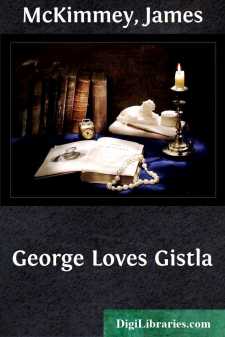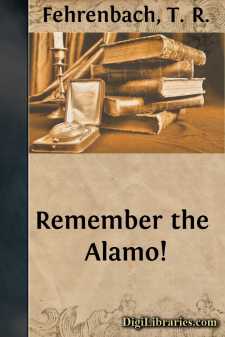Fiction
- Action & Adventure 183
- Alternative History 1
- Biographical 15
- Christian 59
- Classics 6965
- Coming of Age 5
- Contemporary Women 3
- Erotica 8
- Espionage/Intrigue 12
- Fairy Tales, Folklore & Mythology 236
- Family Life 169
- Fantasy 117
- Gay 1
- General 596
- Ghost 32
- Historical 809
- Horror 43
- Humorous 161
- Jewish 25
- Legal 4
- Medical 22
- Mystery & Detective 315
- Occult 1
- Political 49
- Psychological 41
- Religious 64
- Romance 160
- Sagas 11
- Science Fiction 730
- Sea Stories 113
- Short Stories (single author) 538
- Sports 10
- Suspense 2
- Technological 8
- Thrillers 3
- Urban Life 31
- Visionary & Metaphysical 1
- War & Military 173
- Westerns 199
Fiction Books
Sort by:
MARCH, APRIL, AND MAY, 1864. On the 18th day of March, 1864, at Nashville, Tennessee, I relieved Lieutenant-General Grant in command of the Military Division of the Mississippi, embracing the Departments of the Ohio, Cumberland, Tennessee, and Arkansas, commanded respectively by Major-Generals Schofield, Thomas, McPherson, and Steele. General Grant was in the act of starting East to assume command of...
more...
by:
Julia Magruder
A Beautiful Alien On the deck of an ocean steamer, homeward bound from Europe, a man and girl were walking to and fro. Their long march of monotonous regularity had lasted perhaps an hour, and they had become objects of special attention to the people scattered about. A man, who was taking his afternoon exercise alone, and who had accidentally fallen into line directly behind this couple, kept that...
more...
PREFACE. I dedicate this work to my countrymen, in whose intelligence, magnanimity and humanity I place the utmost reliance. Although they have long suffered themselves to be swayed by a prejudice as unmanly as it is wicked, and have departed widely from the golden rule of the gospel, in their treatment of the people of color, to suppose that they will always be the despisers and persecutors of this...
more...
by:
James McKimmey
George Kenington was sixteen, and, as he told himself, someone who was sixteen knew more about love than someone who was, say, forty-two. Like his father, for instance. A whole lot more probably. When you were forty-two, you got narrow-minded and nervous and angry. You said this is this, and that is that, and there is nothing else. When someone thought and felt and talked that way, George thought...
more...
by:
Anonymous
CHAPTER I. Of King Belt and Thorstein Vikingson and their Children. Thus beginneth the tale, telling how that King Beli ruled over Sogn-land; three children had he, whereof Helgi was his first son, and Halfdan his second, but Ingibiorg his daughter. Ingibiorg was fair of face and wise of mind, and she was ever accounted the foremost of the king's children. Now a certain strand went west of the...
more...
by:
T. R. Fehrenbach
oward sundown, in the murky drizzle, the man who called himself Ord brought Lieutenant colonel William Barrett Travis word that the Mexican light cavalry had completely invested Bexar, and that some light guns were being set up across the San Antonio River. Even as he spoke, there was a flash and bang from the west, and a shell screamed over the old mission walls. Travis looked worried. "What kind...
more...
by:
Rudyard Kipling
HOW THE WHALE GOT HIS THROAT IN the sea, once upon a time, O my Best Beloved, there was a Whale, and he ate fishes. He ate the starfish and the garfish, and the crab and the dab, and the plaice and the dace, and the skate and his mate, and the mackereel and the pickereel, and the really truly twirly-whirly eel. All the fishes he could find in all the sea he ate with his mouth—so! Till at last there...
more...
by:
Anonymous
The Arabian Nights Entertainments. The chronicles of the Sassanians, ancient kings of Persia, who extended their empire into the Indies, over all the adjacent islands, and a great way beyond the Ganges, as far as China, acquaint us, that there was formerly a king of that potent family, who was regarded as the most excellent prince of his time. He was as much beloved by his subjects for his wisdom and...
more...
by:
Diantha W. Horne
LEGACY AND LEGATEE Marsden was one of the few villages of our populous country yet left remote from any line of railway. The chief events of its quiet days were the morning and evening arrivals and departures of the mail-coach, whose driver still retained the almost obsolete custom of blowing a horn to signal his approach. All Marsden favored the horn, it was so convenient and so—so antique! which...
more...
by:
Eva Stern
CHAPTER I "NAH! Renestine, cannot you come with the skirt and let me lay it in your trunk? You are dreaming, dreaming all the time. My child, these things must be ready by midnight tonight." The girl was thirteen years old and her mother was getting her possessions together to send her to America to join a sister who had already gone there and was married and now sent to have her little sister...
more...











